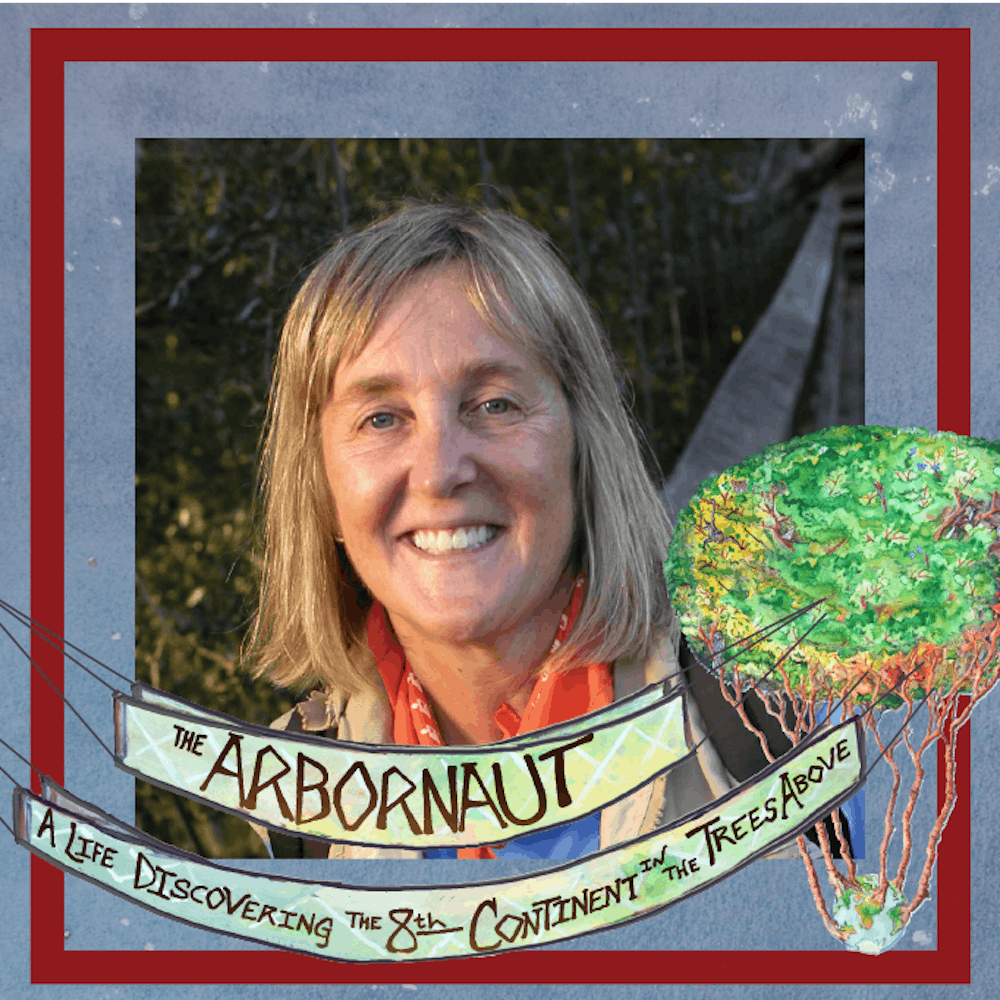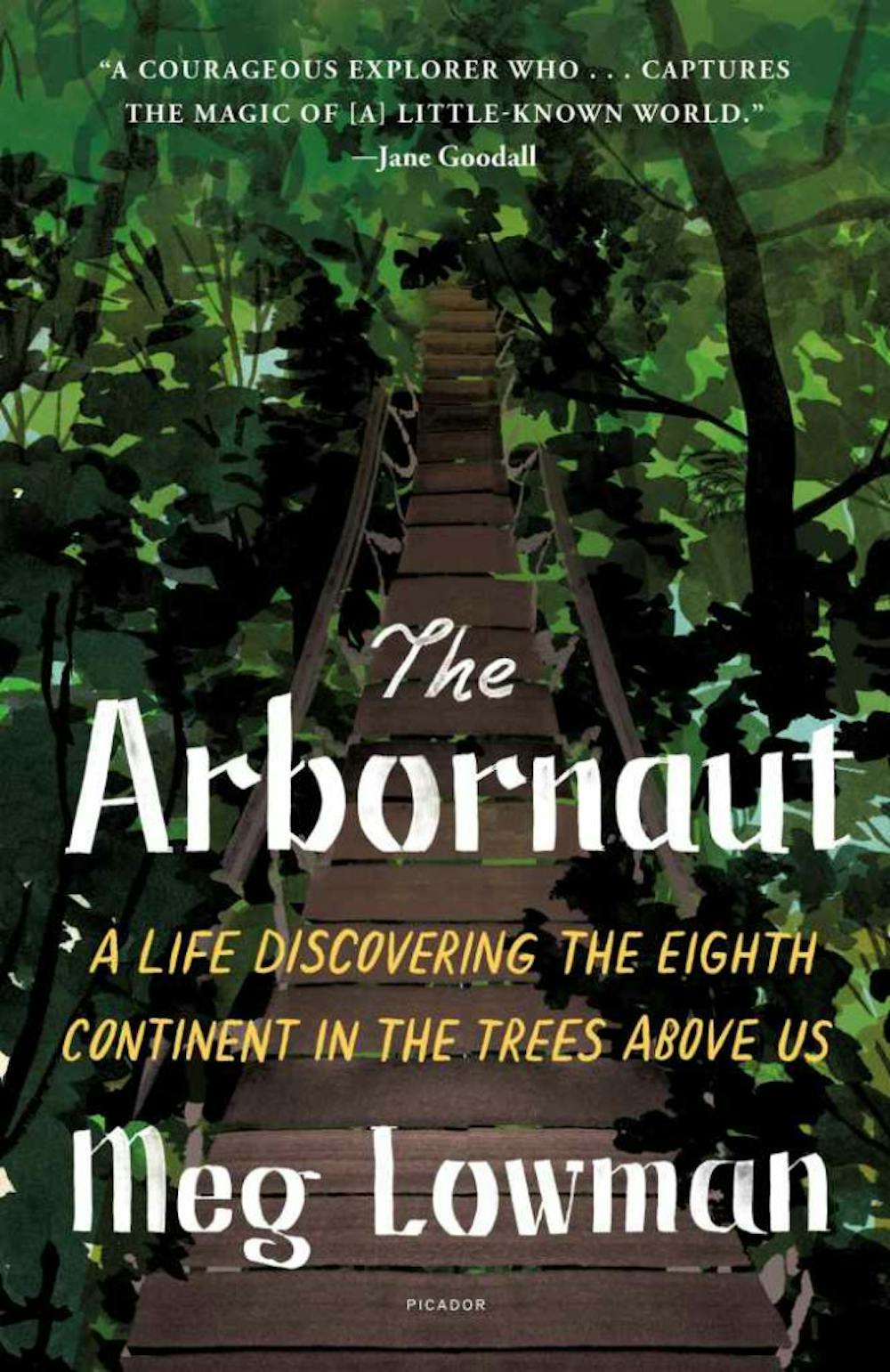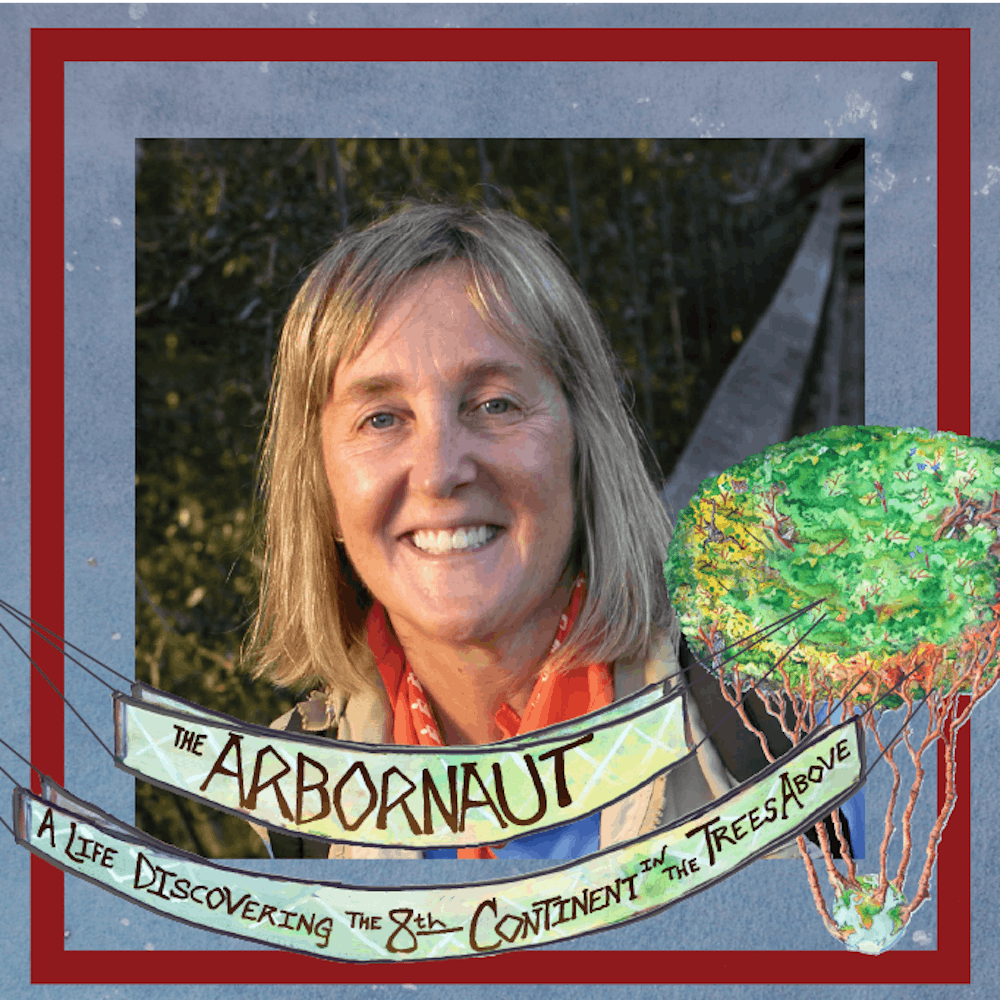Written by: Morgan Schneider
“If I could take you somewhere right now, it would be that walkway in the Peruvian Amazon,” said Meg Lowman, PhD when asked what her favorite place on Earth is.
Known as "Canopy Meg", Lowman, an ecologist studying tree canopies, visited campus on November 3 for the 48th annual Hefner Lecture. Entitled “The Arbornaut—A Life Exploring the 8th Continent In The Trees Above Us”, the lecture was held at 7:30 PM in 100 Laws Hall, with a reception and book signing following in the Hefner Museum of Natural History itself.

The bulk of Lowman’s talk was drawn from her 2021 memoir of the same name and covered her life from childhood in New York through graduate school in Australia and Scotland, and the research she’s done on tree canopies in places such as Ethiopia and Peru. Lowman also spent time talking about her experience as a woman in science—from graduate school to fieldwork, she was oftentimes the only woman on a research trip or in a classroom. “Those were the days when women weren’t supposed to be part of their expeditions,” she said with a smile.
At the time, as well, Lowman was also the only person climbing the trees she studied.
“Not until the 1980s did anyone climb trees for research,” she said during her talk. For decades, ecologists had studied trees by looking at what was near the ground—the trunk and bark, the roots, the branches and leaves they could get to. Access to the rest of the tree was limited unless it had fallen or been cut down.
Lowman became an “arbornaut”—a sailor of trees—when she ascended a coachwood in Australia in January, 1979. Lowman pioneered the techniques used to access tree canopies today. While in graduate school in Australia, Lowman borrowed a harness and ropes from the university’s caving club, and ascended a coachwood in the Royal National Park near Sydney. Since then, she’s used slingshots, construction cranes, and even a hot air balloon to reach tree canopies in places such as Malaysia and Cameroon.
To bring people closer to the canopies, or perhaps the canopies closer to people, Lowman helped pioneer the building and use of tree canopy walkways, platforms and bridges that can snake through a section of treetops. To date, walkways have been built in Australia, Florida, and Brunei, among other places, and can be utilized by the public for anything from ecotourism to education. In Florida, for example, an elementary school class helped discover a new species of insect after going on a walk in the tree canopy.
“These third graders, on their field trip, drew pictures of all the foliage in these holes that they noticed,” said Lowman, “and lo and behold they ended up discovering a whole new species of weevil eating the canopy…they got to be published as scientists at age eleven!”

In addition to her life and research, Lowan also spoke about the importance of protecting and preserving forests and tree biodiversity. In 2020, she founded, a nonprofit working to preserve and protect tree canopies around the world. Mission Green aims to have 10 tree canopy walkways built across five continents by 2030.
Enjoy what you're reading?
Signup for our newsletter
Any suggestions for Miami students who want to get involved in tree conservation? “I talked to some about maybe bringing a tree climbing instructor here and doing a little demo and a class on campus,” said Lowman. “I think some other students in the Primate Club thought they might do a fundraiser for Madagascar, which is amazing.”
And during her time here, did she enjoy Oxford? “Oh, I love it. You have fabulous trees here!”
Lowman’s latest book, The Arbornaut, is available online wherever books are sold. The 48th Annual Hefner Lecture is available to watch online on the Hefner Museum’s YouTube channel. The Hefner Museum of Natural History is located in 100 Upham Hall, and is open from 9AM to 4PM, Monday through Friday, and select Saturdays every month. Admission is free.




